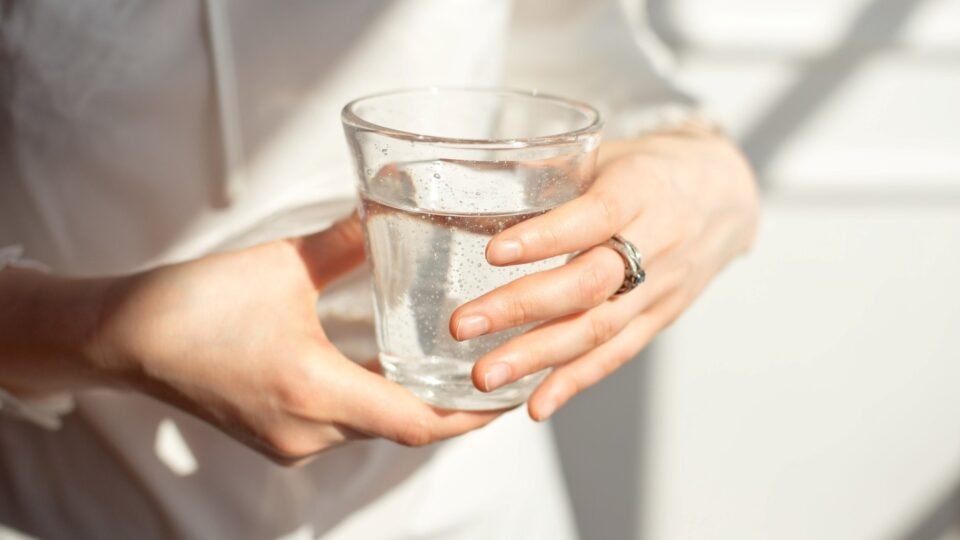Water is life for us because it keeps the human body functioning properly. Water also keeps the human body hydrated and directly contributes to the increased performance of organs. This is because our body is comprised of 65% water, and we can survive without it for not more than two to three days.
That’s why medical experts always recommend drinking adequate amounts of water daily to remain healthy. However, the problem is that there are a number of types of water available, making it difficult for people to determine which one is the best for drinking purposes.
So, we have decided to come up with a complete blog post guide discussing different types of water in detail. After reading this article, you will definitely find your answer for the best water to drink.
Different Types of Water – Explained
Usually, the water we consume comes from the municipal water supply, private wells, natural springs, etc. And each source consists of a certain amount of dissolved amount of minerals, chemicals, and impurities.
Therefore, it is essential to drink water that is free from contaminants or contains less impurities. Below, we have different types of water available, along with the impurities they contain.
Tap Water:
This may seem oblivious, but tap water is the most common type of water that comes directly from faucets. This kind of water is sourced from nearby dams, rivers, and lakes and then transferred to the local people through water pipelines.
In most cities in America, tap water is regulated by the local municipal community. And the essential thing to know is that the municipal committee adds minerals like chlorine to disinfect and kill harmful bacteria and viruses that may be present in the water supply. This helps ensure that the water is safe to drink and reduces the risk of waterborne illnesses.
However, please remember chlorine is considered a harmful water contaminant. Apart from chlorine, there are several other toxic contaminants, such as bacteria, viruses, parasites, heavy metals, pesticides, herbicides, etc.
Mineral Water:
Mineral water, also known as bottled water, is another common type of water. This type of water is usually rich in sulfur, calcium, magnesium, etc. Mineral water is usually sourced from underground sources and is considered a safer and healthier option as compared to tap water.
However, mineral water is an expensive option for drinking water because it involves the overall cost of purifying water, filling it into plastic bottles, and transportation charges as well. Apart from the expense, it also contributes to plastic wastage which is extremely to the earth’s environment.
Distilled Water:
Distilled water is a type of water that is free from most harmful contaminants. The reason for this is that it has undergone a process of “Distillation” that involves boiling water and then condensing that steam back into the liquid form.
The distillation process eliminates toxic contaminants and provides healthy, tasty, and safe water. However, it is also said that, the distillation process eliminates both bad and good minerals from the water. And this claim can be true because boiling the water will kill all kinds of minerals, no matter if they are good or bad.
Alkaline Water:
Alkaline water has a higher pH level than tap water. Its pH value usually ranges from 7.5 to 9.5. This kind of water can be sourced from both natural sources or by investing in an alkaline water filter.
When it comes to natural sources of alkaline water, these includes natural springs, mineral-rich soil, additives, etc. Talking about filtration systems, they can produce alkaline water by separating both the acidic and alkaline components of the water.
Drinking alkaline water can result in a number of health benefits, such as loss of weight, reduced stress, and many more. However, it is recommended to consult with a medical expert or doctor before starting to drink alkaline water.
Filtered water:
Finally, filtered water is another type of water that has been treated using advanced filtration technologies to eliminate impurities and toxic contaminants from it. There are several types of water filters available, including activated carbon filters, reverse osmosis filters and many more.
Filtered water is considered the safest and healthiest type of water. However, the effectiveness of filtered water can vary depending on the type of filter you are using to filter the water.
So, What’s the Best Water to Drink?
Now that you have understood all types of water along with the contaminants that all water usually contains. According to us, filtered water is the best option. The reason for saying this is that it is not free from toxic contaminants but also tasty and offers several health benefits.
Apart from contaminant free and tasty, there are multiple other reasons that we think will be enough to describe your filtered water as the best water to drink.
Cost-effective: Compared to other types of drinking water, such as bottled water or alkaline water, filtered water is often more cost-effective. Bottled water can be expensive, and the production and disposal of plastic bottles can have a negative impact on the environment. Alkaline water can also be costly, as it often requires special equipment or additives to produce.
Convenient: Having a water filter at home can be convenient, as it allows you to have access to clean and safe drinking water at all times. You don’t have to worry about running out of bottled water or making a trip to the store to buy more.
Health benefits: Drinking filtered water can have various health benefits, such as improved hydration, better digestion, and reduced risk of certain diseases.
Conclusion
The best water to drink ultimately depends on personal preference and individual needs. While some may prefer filtered water for its convenience and perceived purity, others may opt for tap water for its affordability and regulated safety standards. It is important to prioritize hydration and choose a water source that meets your specific requirements and preferences.


